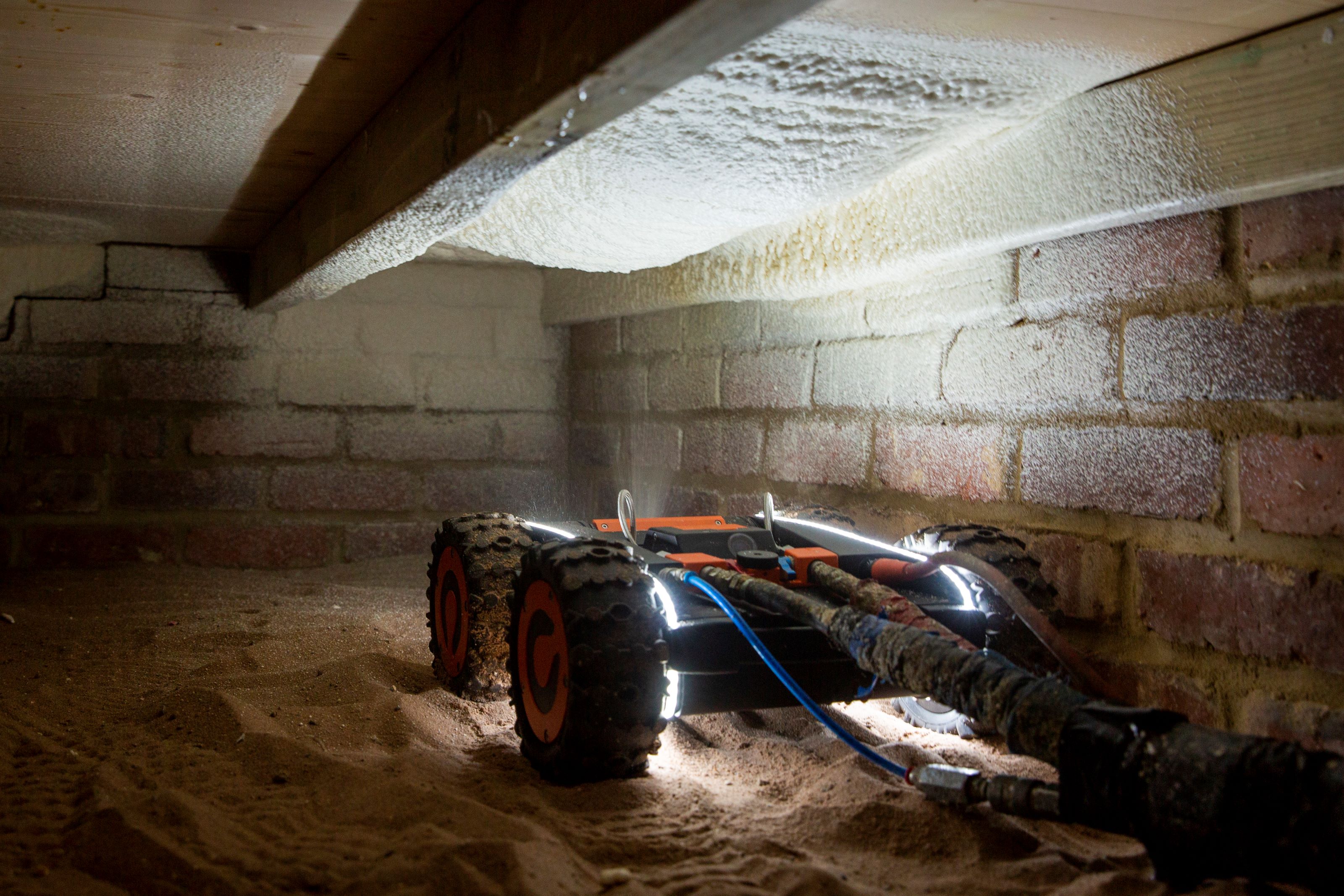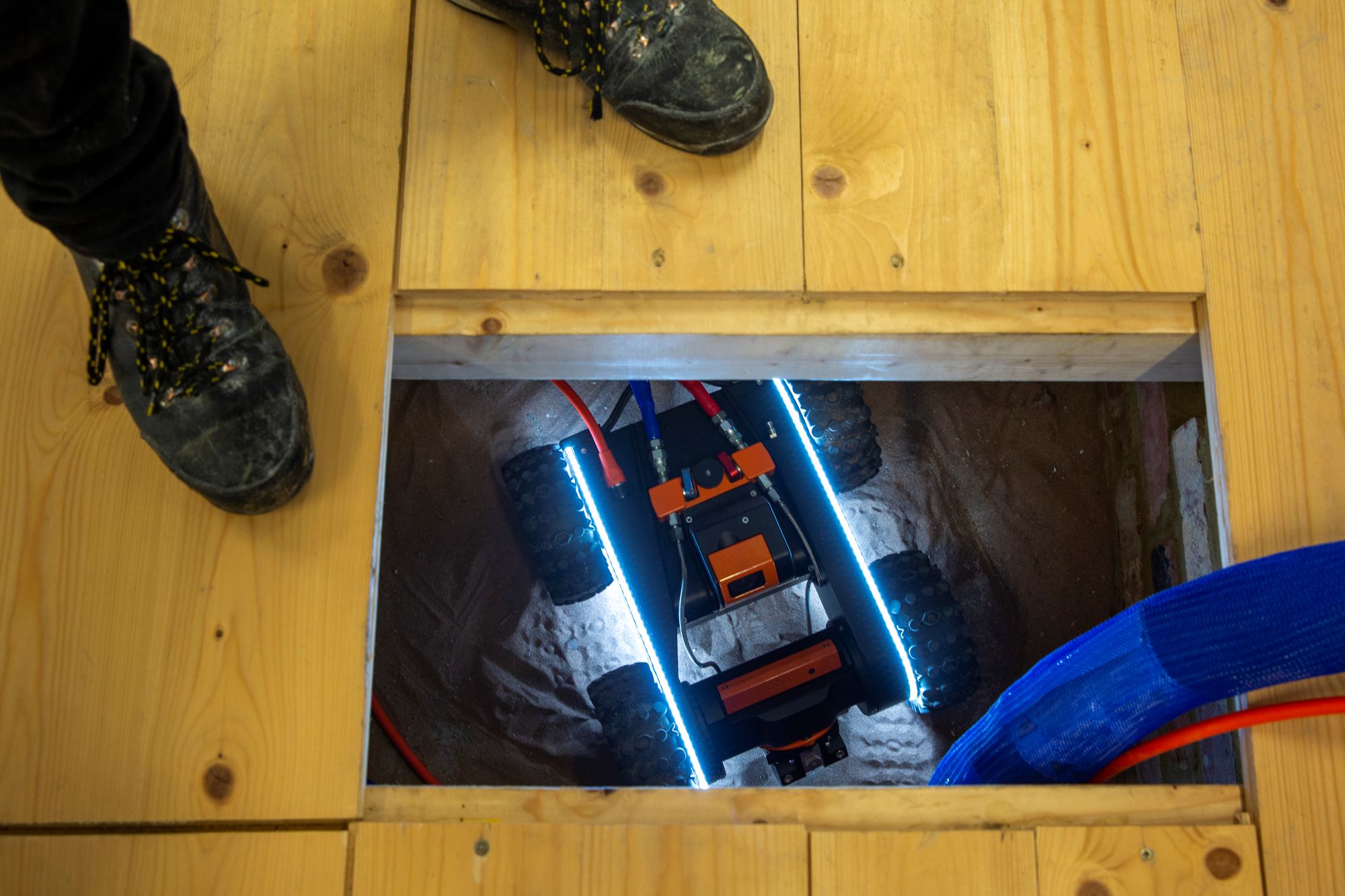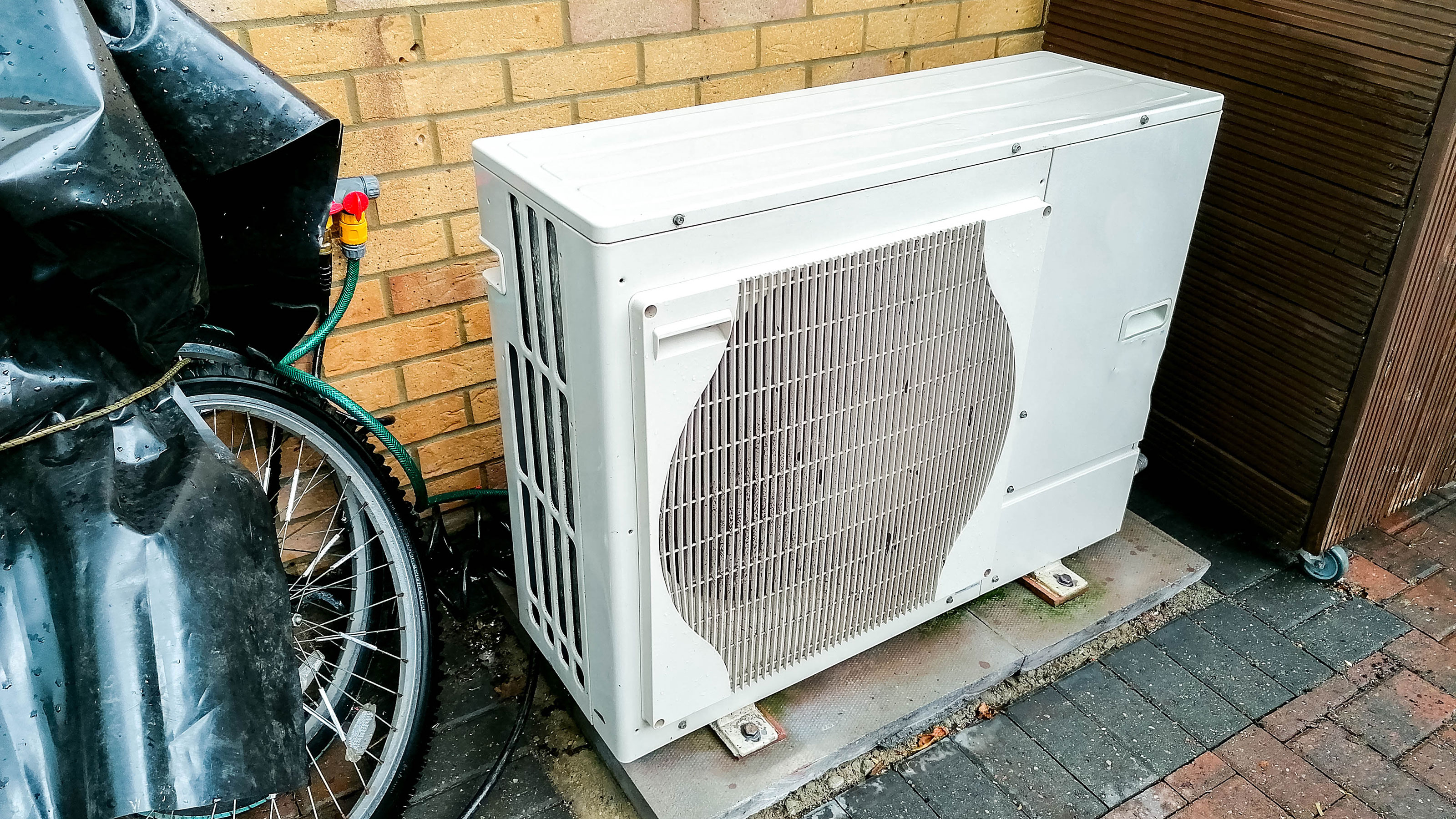Future of heat pumps: Tech firms to watch — including one with robots
Robots that install insulation in our homes are among the innovations of 24 tech firms receiving government funding to increase the uptake of heat pumps in the UK

Around £15 million of government funding was handed to 24 heat pump tech companies this week, lifting the veil on what the future of heat pump technology might look like. And it is certainly looking exciting.
Innovators the government has invested in, include a pioneering programme to crowd share ground source heat pump technology for social housing as well as a company innovating using greywater for energy recovery. There's also one tech firm developing robots to install underfloor insulation. More on this in our who to watch section below.
The eventual hope is that government investment in pioneering technology will make both ground and air source heat pumps cheaper and easier to install, and ultimately to help lower the UK's carbon footprint.
We take a closer look at some of these heat pump innovators to see what the future has in store for the environmentally-friendly technology.
What is a heat pump and why is it eco friendly?
First, the basics. Air source heat pumps and ground source heat pumps are renewable heating solutions which have been advocated by the government to reduce the emissions that come from our homes.
Home heating is responsible for roughly 14% of the UK’s carbon emissions, according to the Climate Change Committee, and the government wants to slash this figure to drive the UK towards becoming net zero by 2050.
But there are two obstacles for many households when it comes to heat pumps: the cost and how difficult installation can be. The government’s new funding decision will champion 24 projects in England and Scotland to tackle these obstacles.
Get the Homebuilding & Renovating Newsletter
Bring your dream home to life with expert advice, how to guides and design inspiration. Sign up for our newsletter and get two free tickets to a Homebuilding & Renovating Show near you.
Who are the heat pump tech companies to watch?
These are just some of the pioneering new developers of heat pump technology that are being funded under the government’s Heat Pump Ready programme. Here's what they have in store for the industry....
1. Q-Bot Ltd
This epic tech firm has developed actual robots to burrow under our floorboards and install insulation in our homes.
First, the floorboards are lifted and the robots are deployed to survey the area and spot piping, electric cables and anything that needs noting prior to insulation being added. If removing floorboards isn't possible, they can be sent through wall voids and other access points that are created.
Next the robot will spray insulation around the void, typically underneath the floorboards to a 12cm thickness. The insulation expands to fill all the gaps to keep your floor warm, dry and draught free.
While the robot does the work, his human companion above the floor will closely monitor the progress and make sure the process is running smoothly.
Q-Bot ltd is also developing a Free Heat Pump Home Survey and Design Tool to help consumers make informed decisions on heat pump installation.
As there are different types of heat pumps available with vastly different applicability, thermal output, installation complexity and cost, the tool will help consumers match the heat pump to the thermal demand of the house and other specific needs on a case-by-case basis.
Kensa's Highly Flexible Storage Heat Pump (HFSHP) aims to combine electrically-driven heat pumps with heat storing batteries to shift heat production from times of peak electrical demand on the National Grid.
In theory, this enables consumers to charge heating systems to store lower cost and lower carbon heat in anticipation of their peak heating demand.
In partnership with the University of Strathclyde, Kensa aims to separate the times of heating demand in the property from the time of electrical heat production and will help accelerate the technology to the market to make it affordable in a shorter timescale.
By shifting energy demands, the project also aims to negate some of the challenges faced by the grid from electrifying and decarbonising heat.
Kensa is also pioneering crowd sharing ground source heat pumps for social housing to help green local councils and bring down bills for low income households.
3. RJ Barwick
Retrofitting heat pumps into homes with poor energy efficiency has posed a problem for heat pump technology in the past. But now the government is heavily investing in one company focused on this exact problem.
A million non-traditional homes, such as those with timber or metal frames, in the UK have poor energy performance and present a key challenge to standardised energy efficiency measures that typically precede a heat pump installation.
Retrofit specialists RJ Barwick’s project aims to develop optimum standardised whole house retrofit solutions for four of the most challenging and/or common non-traditional home archetypes across sites in West Kent.
The company said: “Each house has its own complexities and sharing of practical archetypal retrofit knowledge on ‘hard to treat’ non-traditional homes underpins this project.”
4. Thermoelectric Conversion Systems Ltd
This tech company is developing a two-stage heat pump with greywater energy recovery. It aims to let heat pumps draw on energy from the household wastewater stream. This might include reusing water from your shower or bath, or by fitting the heat pump in the drainage system to recover energy stored in a hot water cylinder.
The company also advocates using a small air source heat pump to ‘top up’ the hot water tank temperature to provide the domestic hot water supply.
This solution aims to make retrofitting heat pumps in existing homes more economical as well as helping improve the energy efficiency of new builds too.
Energiesprong, Dutch for ‘energy leap’, is an initiative that focuses on giving old homes an energy efficiency "makeover" with their retrofit programme. They claim this can be completed in as little as 10 days and lasts up to 40 years.
The tech firm will then offer up a ‘comfort plan’ to owners of these retrofitted homes, giving them guaranteed heating efficiency in return for a fee. This fee is made up of the cost savings the homeowner makes as a result of the energy efficiency retrofit.
This can also apply to housing associations, with tenants paying out an "energy service fee" fixed at the value of their energy bills before the works, to fund the retrofit.
The comfort plan is a package of services for heat, hot water and electricity at a fixed price - providing tenants with a warm, comfortable home at the same price or cheaper than before.
The aim is ultimately to allow further heat pump rollout without costs being prohibitive for tenants and homeowners.

How can funding make it easier to install heat pumps?
Heat pump sales were the lowest in Europe in 2020, according to a report by Cambridge Econometrics, and what is likely to be a concerning factor for the government is the lack of widespread awareness of heat pumps. A study from earlier this year revealed that the majority of homeowners are not yet convinced by heat pumps.
So what is the cost to replace a gas boiler with a heat pump? It’s not cheap, even with the government’s Boiler Upgrade Scheme grant funding of up to £6,000 for heat pump installation.
Installing an air source heat pump in a new home could cost in the region of between £5,000 and £10,000, but this can rise anywhere up to £30,000 in an existing home if it requires the installation of a completely new radiator system and new pipework, according to David Hilton, director of Heat & Energy Ltd and contributor to Homebuilding & Renovating.
A basic ground source heat pump, meanwhile, can cost between £2,000 to £15,000 depending on size and brand. This cost is likely to be three to four times more expensive than a gas combi boiler. However, the government hopes that heat pumps could cost the same as gas boilers by 2030.

Lowering these costs is a government priority, as is making them easier to install. Around 54% of UK homes using gas for heating will not be suitable for a heat pump, according to the Energy and Utilities Alliance (EUA).
Hilton says: "Putting heat pumps into new builds isn’t difficult, but we need to make heat pumps more compatible with existing homes. That’s the problem that we’ve got. Removing microbore pipes (which can be required to install a heat pump), is one of the biggest challenges challenge for installers, and it can be costly for homeowners too."
There are many factors which can determine whether a heat pump is suitable for your home. For example, you'll need to have space for an air source heat pump to be attached to a wall or fitted on the ground, with space around it to ensure a good airflow.
However, a government-funded project from 2021 reported that heat pumps were suitable for all types of homes, and there is no “particular type or age of property" that can’t have a successful heat pump installation.

Amy spent over a decade in London editing and writing for The Daily Telegraph, MailOnline, and Metro.co.uk before moving to East Anglia where she began renovating a period property in rural Suffolk. During this time she also did some TV work at ITV Anglia and CBS as well as freelancing for Yahoo, AOL, ESPN and The Mirror. When the pandemic hit she switched to full-time building work on her renovation and spent nearly two years focusing solely on that. She's taken a hands-on DIY approach to the project, knocking down walls, restoring oak beams and laying slabs with the help of family members to save costs. She has largely focused on using natural materials, such as limestone, oak and sisal carpet, to put character back into the property that was largely removed during the eighties. The project has extended into the garden too, with the cottage's exterior completely re-landscaped with a digger and a new driveway added. She has dealt with de-listing a property as well as handling land disputes and conveyancing administration.
